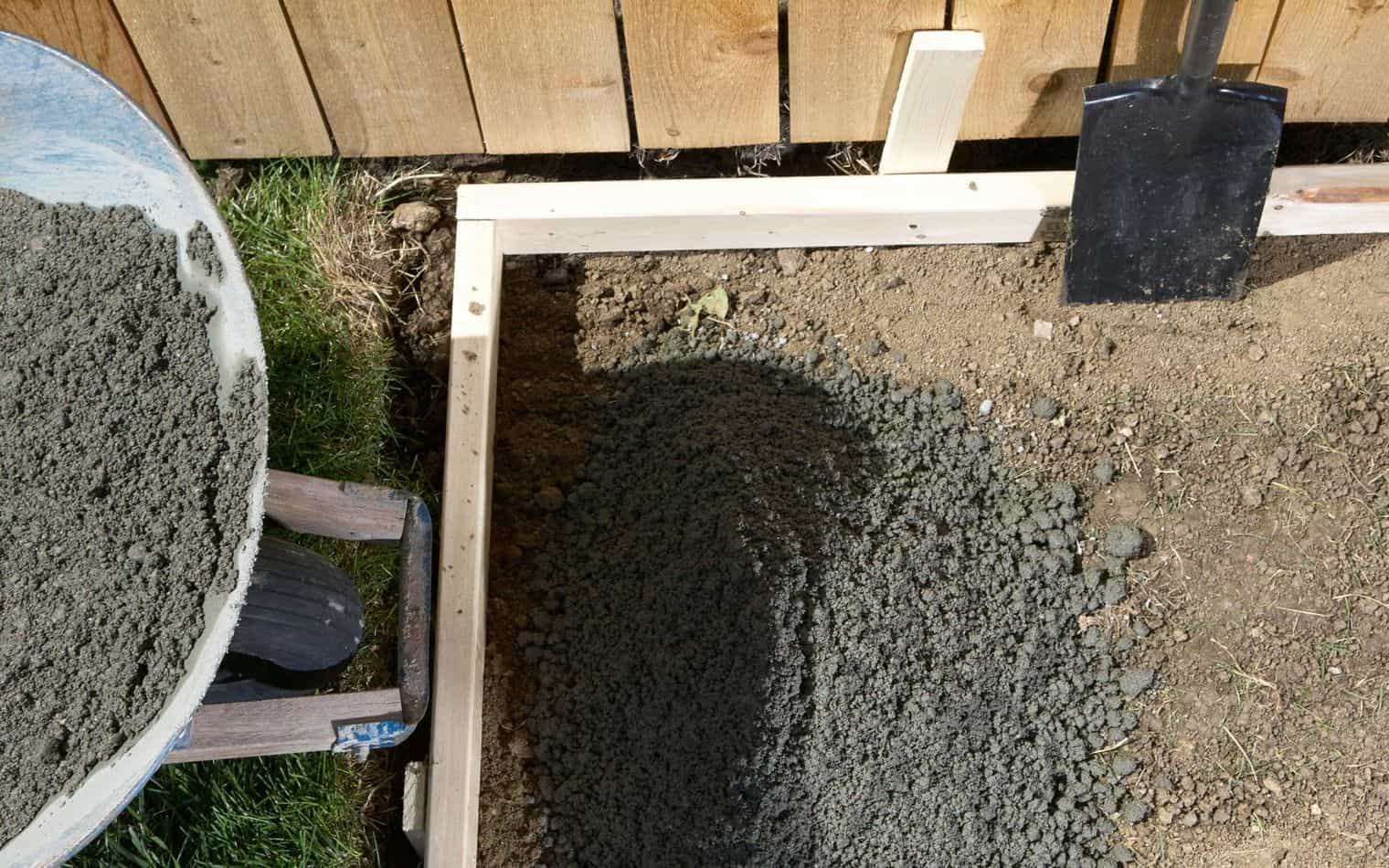The joy of a renovating\building a house or installing a patio or yard house can be thrilling, and the excitement might make you start construction without asking critical questions. But did you know you need a permit to pour concrete in your backyard?
Regardless of the concrete quantity or construction size, individuals must obtain permits before kickstarting any construction process. This is to give local authorities a heads up on whatever you’re constructing.
One problem with choosing to pour concrete in your backyard without obtaining necessary permits is that eventually, local authorities will find out about this, and you’ll be fined heavily. So, how do you avoid this? Keep reading to find out.
Can You Put Concrete in Your Backyard?
It is a tricky question because the answer depends on the state or city you reside in. Many people feel like hiring a contractor is all you need to do when renovating or designing your backyard. That doesn’t seem right. Hiring a contractor is as important as knowing the regulations that govern your building project. You might believe that your contractor should take care of any necessary permit, but as a building owner, you should know everything involved in your building process.
If your contractor forgets to get a permit, your construction will suffer for it; not your contractor’s construction.
Generally, if you are taking up any building project, including pouring concrete in your backyard to remodel it, you need to check with local authorities beforehand. If the backyard concrete project is considered above-grade (more than 30 inches above adjacent grade), then you will need a permit.
The size of the area you intend to pour the concrete over determines whether or not a permit is needed. If the site is over 200 square feet, you will need a license. If you reside in a community with development restrictions, like an environmental protection zone, you might also need a permit to pour concrete in your backyard. Click here
With a proper building plan, the best contractor, and a permit, nothing is stopping you from pouring concrete in your backyard to build a beautiful patio. Suppose your concern is about the dirt or soil currently in your backyard, then you need not worry. Concrete can be poured over the soil with a well-planned pouring procedure.
Concrete is a traditional, versatile, and beautiful choice for designing your backyard. It can be cast and modeled into any shape you desire. If you don’t want a conventional grey color, you can even add a tint to make it any color you choose. Besides, concrete floors are known to be durable, sturdy, cheap, and easy to maintain.
What Happens If Concrete Is Poured Without a Permit?
If the concrete backyard you are building requires a permit and you didn’t obtain one, or your contractor skipped the process, you will suffer the consequences, which vary from state to state. Those consequences include a hefty fine, citation, and retroactive permit cost. It might also lead to difficulty in the financing, insuring, or even reselling of your building.
However, these permits are not there to make you miserable or outrightly frustrate your efforts to build the home of your dreams. They are in place because when people don’t follow building protocols, accidents happen, which puts the lives of the occupants and neighbors at risk.
Who Obtains the Permit?
Whoever pulls the permit is liable for the concrete backyard project. Thus, if you’ve hired a contractor, it is the contractor’s responsibility to obtain the permit. Your job, as the homeowner, is only to ensure that the permit has been obtained before the contractor begins work.
As mentioned earlier, getting a permit is the only way for authorities to know what you’re building in your backyard, whether it’s safe or not, and whether or not there should be some restrictions. You can’t just proceed to build what you want on your property because you own it. More information on this here
If it’s your first time to own a yard, there are a lot of things that you need to know if you want to keep it green and healthy. From regular mowing and watering to aerating the soil once in a while, you have quite a bit of new chores that you need to do. To help you with this task, here is our complete guide to yard maintenance for new homeowners.
What Is the Importance of a Permit?
Obtaining a permit ensures that your building is built in the right location and that your plan is environmentally friendly, comfortable, and not detrimental to your neighbor. When constructing a concrete backyard, it also is crucial to obtain an evacuation permit to avoid digging in a location with underground utility pipes and cables. Imagine digging where electricity cables are buried. It’s risky, unsafe, and can be disastrous.
How Close to Your Property Line Can You Pour Concrete?
This aspect depends on your local zoning code. It is best to also read the country’s rules about property setbacks as this helps you understand your property’s boundaries.
Pouring concrete close to your property line depends on the function of the area. If it is to create a walkway, you can pour it up to your property line.
However, if it is for your backyard patio, you should not pour concrete less than 18 inches from your side property line and no less than 15 inches from the rear property line. These are not definite figures; they are just recommendations. Make sure you check with your local zoning officials for accurate information (source
If you’re pouring concrete to cover your entire backyard, you have to make the necessary inquiries. If you pour it to your property line, it could affect the neighbors’ fence or even bring it down. In such cases, your neighbors can press charges for the damages. Then, all the processes you avoided would come back to haunt you on a larger scale.
Conclusion
Obtaining a permit for your concrete backyard might seem unnecessary, complicated, and time-consuming, but unfortunately, it is not your place to determine whether the construction in your backyard requires a permit. Thus, check with the local authorities and ensure your contractor has obtained one before you start the remodeling.
It is dangerous to ignore obtaining a permit, no matter how time-consuming it is.

